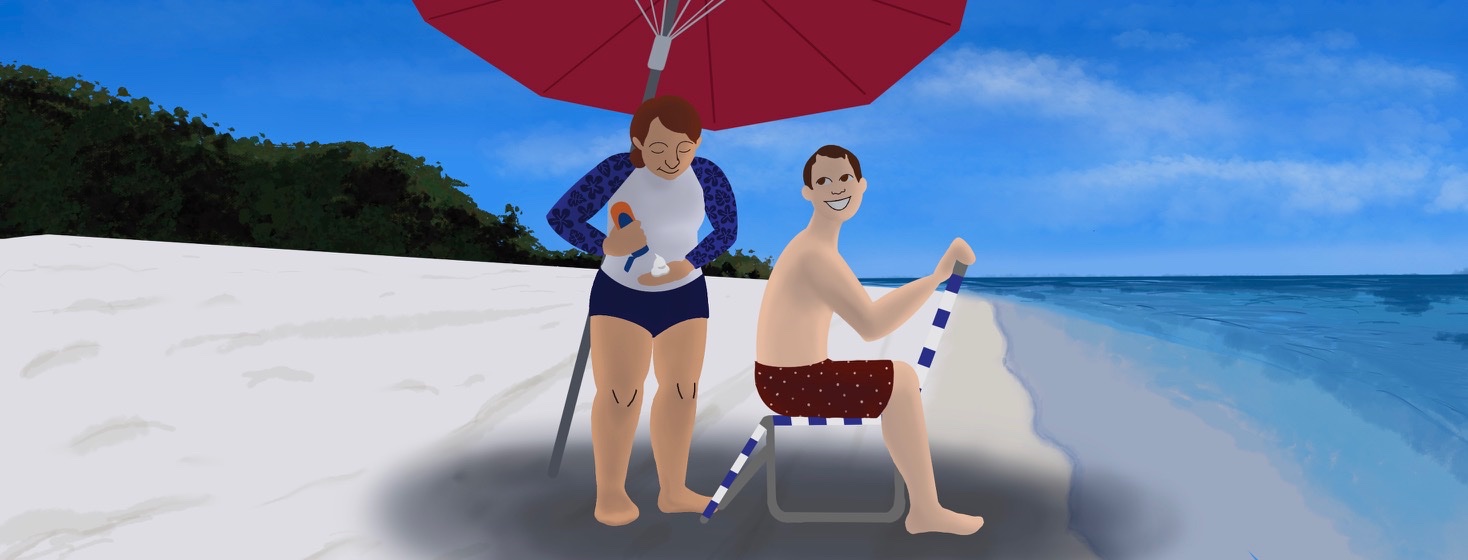A Little Help From My Friend
Having melanoma can be lonely. Very few people in my daily life have had any serious health concerns. Most don’t know much about skin cancer and fewer, understand that it can be deadly at most any age. Often, I feel like the oddball at a summer gathering as I hide in shade and reapply sunscreen at nearly every turn.
The importance of skin cancer advocacy friends
Through my affiliation with this site, I have gotten to know some great folks. I have made friends who understand and even though we all live in different states, we connect in ways that are very important to me. I’m not really alone at all.
One of these friends is April Brown Pulliam. April is a great writer and has been through a lot in her journey with skin cancer. I really admire her. She exemplifies an advocate who cares about skin cancer because it has changed her life. I wanted to ask April a few burning questions that had been on my mind for a while. Here were a few of her replies.
1. What has been the most rewarding part of skin cancer advocacy? And why?
I think the most rewarding and surprising part of advocating for sun safety has been seeing the number of people who say that they have stopped tanning since seeing my videos or reading my story. There are far more people who hear what we say as advocates and choose to continue with tanning and shunning sunscreen - I am well aware of that. But I am always amazed at the people who say my words were what did it for them - no more tanning. I have also had many people ask more questions about sunscreen which tells me that what we say as advocates is really striking a chord.
2. What frustrates you about sounding the alarm about skin cancer? And why?
The most frustrating thing I have dealt with is the notion that tanning is somehow healthy. There is a portion of the population who wholeheartedly believe that tanning, in the sun or in beds, is a healthy habit that provides vitamin D and carries a host of other health benefits. It becomes especially difficult to combat that mentality. People, in general, gravitate toward positive things, and when they already want to tan and hear someone say that it's good for them, they immediately turn a deaf ear to all other information.
3. What would you tell your teenage self and how would your teenage self respond back to you? What might you then say in response?
Oh, if I could go back and have a little sit-down with teenage self, I would let me have it. The whole 'if-your-friends-all-jumped-off-a-bridge' talk comes to mind. I had no one telling me not to tan. I had no one telling me to stop laying out in the sun. There was no talk of melanoma or skin cancer in my house or among my friends. I would love to be that person for my teenage self - the person I am trying to be for my daughter.
I am pretty sure I would have some backsass for adult me. I would absolutely not want to be the pale one at the prom. (As it turns out, I was the red one. For all my tanning efforts, I only ever really turned various shades of red). No doubt, I would know way more than adult me and be convinced that tanning was safe.
Photos of Efudex treatments for precancers would be incredibly handy in helping to convince teenage me to kick the habit - and it is a habit/addiction, and I have some pretty frightening photos. Seeing the red, rashy, and practically unrecognizable face of the future me might just do the trick.
4. Why is community important to you as it relates to skin cancer advocacy?
The phrase "it takes a village" comes to mind when I think of community and skincare advocacy. Unfortunately, we are still battling against the idea that skin cancer isn't really cancer and therefore isn't actually dangerous or damaging. A supportive community of advocates, patients, survivors, and their families, and physicians intent on spreading awareness and promoting sun-safe practices is vital to turning things around.
Thank you, April. I couldn’t have said it better myself. Here is the big takeaway...find friends like her.

Join the conversation